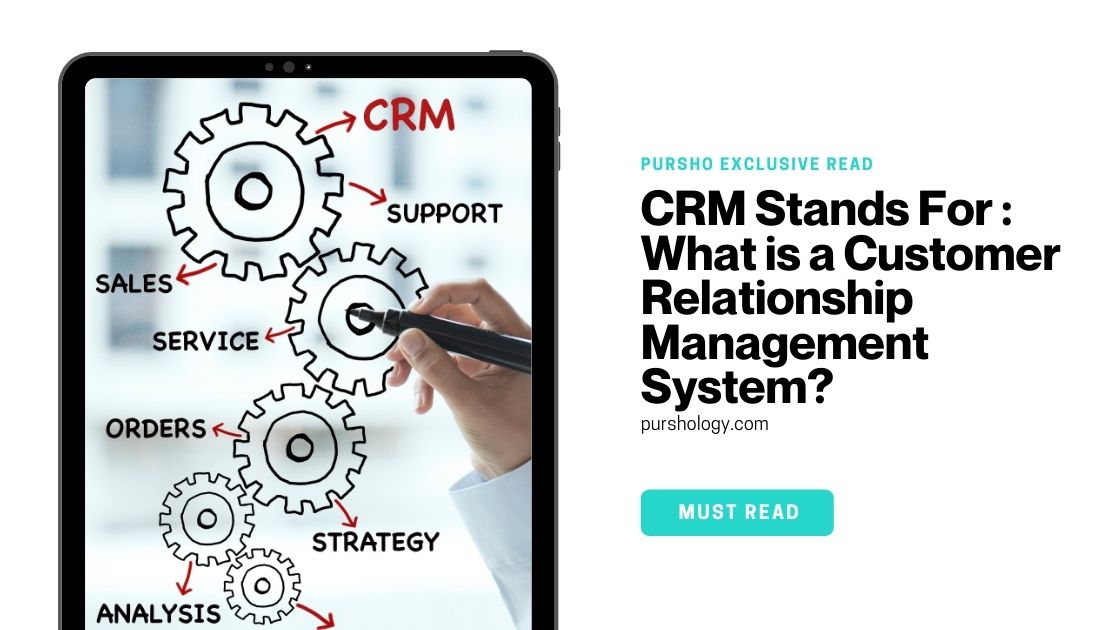CRM stands for Customer Relationship Management. It is a generic term that covers various processes and strategies used to improve customer service and manage customer relationships. Customer relationship management is a strategic process where a firm or organization administers its customer-facing interactions with clients, typically with the use of data analysis to map large quantities of detail about each client. These include:
- Developing a personalized customer experience.
- Mapping current and past client data to understand client preferences.
- Creating or buying a list of suitable clients
- Developing a sales approach that is consistent with the products and services offered
- Making available to clients all the information required by them
- Keeping in touch with clients and prospecting them to make repeat purchases
- Developing training methods and tools that train employees on how to better serve clients
- Updating client data to make it easier for managers to manage workflow and address problems as they arise
- Integrating new technologies to make the most of the benefits provided by technology
- Updating billing procedures to take advantage of the latest improvements in billing systems.
The Reason Why CRM Stands For
Customers interact with a firm’s products and services on a daily basis. This enables companies to sell more products and earn more revenue. With this in mind, customer relations management software was developed to help firms maintain, monitor, and track customer transactions. Customer relationship management systems help in aligning goals and missions with strategies that help in improving customer satisfaction levels. Such systems are designed to optimize client satisfaction, enhance loyalty, and maximize productivity.
CRM Stands For A Business As lifeline
Customers tend to get confused with the myriad of available choices in the market. In fact, they get bombarded with so much information about marketing and business that they lose focus on what their company does on a daily basis. Customers are the lifeblood of any business and without them, a firm will not be able to survive for long. A CRM helps a company focus on its core business functions and concentrate on providing the best possible services to its customers. Customer Relationship Management or CRM, therefore, is more than just making sales.
CRM can help in integrating customer information
CRM can help in integrating customer information across different departments in a company. For instance, if there are two stores located in the same city, but have different hours of operation, a CRM can be used to keep track of both stores, their products and services. A business can also use the system to monitor its staff activities and performance. If a salesperson is not meeting targets, the CRM can provide important feedback regarding the poor performance of the salesperson, allowing him to learn from his mistakes and improve on his performance level. As a whole, a CRM system provides important information about its clients and helps in decision-making regarding the future of the company.
CRM stands for creating a brand image
Apart from having an impact on sales, a CRM also has an impact on the image of a company. It helps customers realize that a particular company is not just about products, and services, but is also more than a store or a factory. In many instances, it is also used as a sales tool. Therefore, it should be able to gather information about a particular customer before making any decision to either close a deal with the customer or to promote a new product. In fact, a CRM provides crucial information that allows the company to decide whether to pursue a particular customer or not. Without a proper CRM, a company cannot make informed decisions regarding deals and products.
CRM Stands for Developing & Maintaining Customer Relationships
In addition, a CRM is also very important when it comes to developing and maintaining relationships with customers. A good CRM system helps the company to establish and maintain long-term relationships with its customers. It helps the company build loyalty among its customers by keeping them satisfied with the products and services they buy from the company. A good CRM helps in nurturing positive feedback from customers and significantly improves the chances of a company making profits. In fact, a CRM is considered one of the most important tools in ensuring a successful and profitable business.
Conclusion
There are several CRM software’s that are now available in the market and software solutions can help in managing customer databases, generating leads, managing customer information, and generating leads, as well as generating sales and following up of customers. This enables a company to manage its customer relations management better. Moreover, CRM software makes it possible for a company to use its CRM to serve every part of the organization. For example, a CRM can also be used as accounting software that automates billing, tracking, analyzing, and maintaining customer data and contacts.




